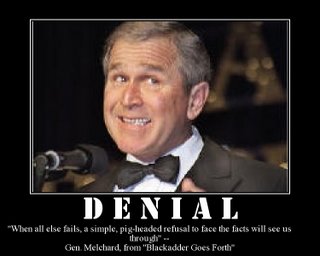Review of the News, November 21

Quote Of The Day
Our present selection addresses a persistent source of perplexity: Why do so few subjects of the regime notice our ever-deepening condition of servitude?
“From the time of the Magna Carta and even earlier, the makers of English law have been concerned to protect the physical freedom of the individual. A person who is being kept in prison on grounds of doubtful legality has the right, under the Common Law as clarified by the statute of 1679, to appeal to one of the higher courts of justice for a writ of habeas corpus. This writ is addressed by a judge of the high court to a sheriff or jailer, and commands him, within a specified period of time, to bring the person he is holding in custody to the court for an examination of the case – to bring, be it noted, not the person’s written complaint, nor his legal representatives, but his corpus, his body, the … solid flesh which has been made to sleep on boards, to smell the fetid prison air, to eat the revolting prison food.
This concern with the basic condition of freedom – the absence of physical constraint – is unquestionably necessary, but is not all that is necessary. It is perfectly possible for a man to be out of prison, and yet not free – to be under no physical constraint and yet to be a psychological captive, compelled to think, feel and act as the representatives of the National State, or of some private interest within the nation, want him to think, feel, and act. There will never be such a thing as a writ of habeas mentum; for no sheriff or jailer can bring an illegally imprisoned mind into court, and no person whose mind had been made captive … would be in a position to complain of his captivity.”
Aldous Huxley, from Brave New World Revisited
Define “Temporary”
All created things have a life-span. Stones will eventually be worn down to pebbles, and then to dust. The “fixed” stars are nothing of the sort; constellations will change (some have, within the memory of man), and the radiant orbs that compose them will themselves grow cold and die, or erupt into the cataclysmic fury of supernovas.
With this in mind, it’s useful to ask: What does the regime mean when it hints that there will be a “temporary” increase in troop deployments to Iraq? What is their time horizon, if any?
In 1898, a “temporary” telephone tax was imposed to pay for another demented war, this one intended to grab a few territories from the pathetic remnant of the Spanish Empire. That “temporary” tax was repealed last year — more than a century after it was first imposed.
Back in World War II, with the aid of the late Milton Friedman, the regime under FDR imposed the payroll withholding tax as another “temporary” wartime expedient. The expiration date of that monstrous imposition has yet to be reached, more than half a century later.
In 1950, U.S. Troops were deployed to Korea as part of a temporary “police action” under UN command. Our military temp workers remain deployed in Korea today.
A biographical variation of this principle is offered by the case of Skull & Bones legacy George W. Bush, who was given the place-filler secret name “Temporary” back in 1969; his attention occupied by other matters (such as evading military service in Vietnam – a perfectly sensible course of action not available to less privileged kids), “Temporary” never bothered to change the default label.
So once again I inquire: When we’re informed that the Pentagon is considering “a substantial but temporary increase in American troop levels in Iraq,” what is the projected half-life of this “temporary” deployment?
Unless our defeated force is driven out of Mesopotamia in a panicked, disgraceful rush, or – even worse – cut off and slaughtered (did the brain-boxes running this war ever play “Risk”?), I suspect that there will be American troops entrenched in Iraq until Jesus comes, or thorium 232loses its potency, whichever comes last.
The build-up itself may be “temporary,” if only to provide a suitably inflated troop count that can be reduced at some unspecified future date in order to provide an illusion of “progress.”
Note as well that the Pentagon describes this scenario as the “surge option.” Remember that expression “surge”; one advertised purpose of the proposed “national service” program supported by Charles Rangel and others – in which all 18-year-olds would have to enlist in federal service, either in the military or some other role – would be to provide “surge capacity” for military missions abroad.
“Channeling,” revisited
Back in 2002, Navy Recruiter Lt. Jason Hudson, whose territory is centered in Tennessee but includes parts of five states, was puzzled by a directive that was apparently designed to promote enlistment of white recruits while diverting equally qualified black enlistees.
Lt. Hudson spoke out against what a policy he regarded as racially invidious and probably illegal. That policy was repealed, but Lt. Hudson faces a negative evaluation that he suspects, reasonably, to be a retaliatory action by his superiors.
There may be little substance to Lt. Hudson’s complaints, but this episode offers a suitable occasion to review the Vietnam-era practice of “Channeling,” in which the Selective Service System enforced a de facto caste system.(.pdf)
The draft is not “only about putting men in the military,” observes activist Ron Jacobs in CounterPunch. “It is also about maintaining the stratification of society based on society’s current economic needs [as those “needs “are defined by the ruling political class, of course – WG]. Prior to 1969, the military draft consistently deferred men who were considered to be `college material.’ In addition those in college whose studies might have been useful to the war machine-say in the areas of technology and science-were granted deferments. This policy was called `channeling’ and was defended as being in the national interest. Its converse-the channeling of men who weren’t considered `college material’ to the front lines, was by default, also considered to be in the national interest. After 1969, when the national draft lottery was introduced in the name of supposed fairness, the policy of channeling was continued via the AFQT [Armed Forces Qualifying Test]. Those young men whose numbers were drawn who were sent to the front lines were more likely to have scored lower on the [AFQT]. Those young men whose numbers were drawn who scored higher, usually because they had received a better education, were assigned to units more likely to be out of harm’s way, probably in another part of the world.”
Future Vice President Deadeye Dick Cheney, who had “other priorities” than service in Vietnam, was able to channel-surf his way to multiple deferments, as were many others in the neo-Trotskyite War Party.
The fundamental evil of conscription is it asserts a claim no government has a right to make, namely that it is entitled “to every dollar and every right arm in the country for its protection,” as the New York Times explained in a pro-draft “Civil War”-era editorial I’m doing my best to make notorious.
The draft always entails regimentation of the economy as well as the impressment of slave labor. This is why Bernard Baruch, the Woodrow Wilson regime’s Economic Commissar, demanded the power to control the entire labor force, set prices, and control all productive activity. He also administered the “Work or Fight” initiative, through which the federal government commanded men who received deferments to be “faithfully, continuously and usefully employed in a capacity and for an enterprise determined by the government to be essential to the prosecution of the war….”
In brief, as I’ve explained elsewhere, conscription is not merely integral to communism; it is communism.
Philip Gold, author of the new book The Coming Draft: The Crisis in Our Military and Why Selective Service Is Wrong, points out that like any other central planning scheme, conscription always entails mal-distribution of the resources it commands – in this case, the living bodies of young people. The “channeling” caste system was one inevitable result.
During Vietnam, recalls Gold (who doesn’t oppose conscription in principle, as any decent, freedom-focused person would), there was “a vast excess of bodies over and above the military requirements. So the pre-Vietnam draft became an exercise in social engineering – or, as it was called back then, `channeling.’ A complex and generous latticework of deferments and exemptions encouraged young men to beat the draft by engaging in socially desirable activities…. This was essentially the draft we used to fight Vietnam: a draft designed to keep people out. The lottery system that replaced it from 1970 to 1973 represented an improvement. But that lottery was a buy-off until the draft could be ended entirely. Today a lottery system would face the same problem: a major excess of bodies beyond requirements. The same basic inequity – some serve, many don’t – would pertain, unless we hauled off a couple million teenagers a year for the sake of `fairness.’… Would renewed conscription be `homeland defense only,’ or would it simply provide future presidents with large quantities of semiskilled, expendable labor?”
I have a better question: Why are we even tolerating a discussion – however furtive – of renewing the odious practice in any form?
Oh, that’s right – see the Quote Of The Day above.
Obiter Dicta
I’m aware that I owe you a significant announcement, sometime “around Thanksgiving.” Here’s a downpayment: I’m working on a book about the emerging American Reich; it should be done by New Year’s Day. I’ll have additional details regarding publication and distribution as soon as they’re available.
If you have enjoyed these Review Of The News segments, you’ll be interested to know that — as soon as the technical details are worked out — they will be available at The Right Source as a daily feature. I’ll continue to post lengthier essays here at Pro Libertate.
Content retrieved from: http://freedominourtime.blogspot.com/2006/11/review-of-news-november-21.html.





























